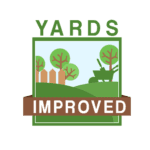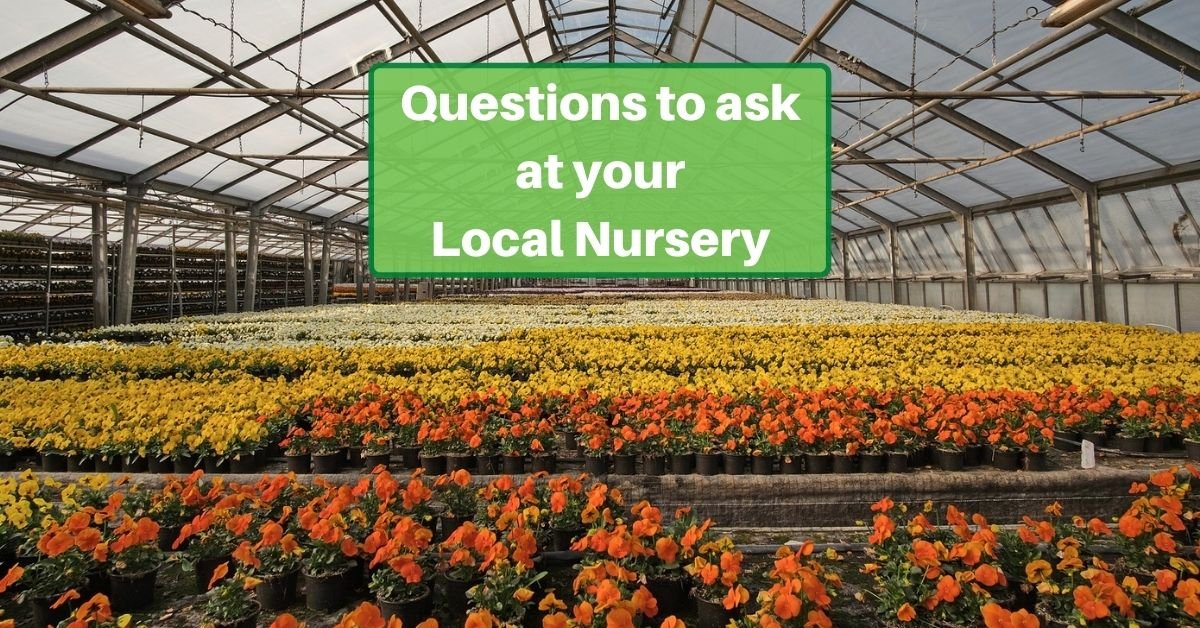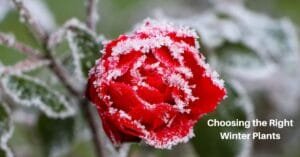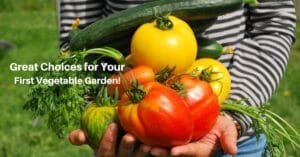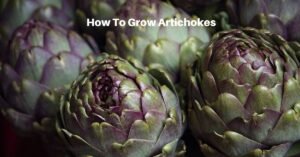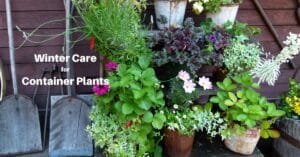We’re trying to become your go-to resource for questions about gardening and other backyard tasks and activities. But we know we can’t answer every question. One reason for that is because so much depends on your local situation!
Fortunately, local plant nurseries are a great resource. Their staff knows the ins and outs of the weather, soil, and other conditions that will help you make appropriate choices and grow a beautiful garden.
In general, a small local nursery is going to be able to provide better advice than a big box store. The local business usually has people who have more knowledge and experience.
Nothing against people working big box retail, but they often are put into slots because the store needs someone to do the job. We’ve come across some great people in these roles, but it’s hit and miss. Many don’t have the knowledge or passion for what they’re doing.
On the other hand, people working at a local greenhouse are more likely to be there because they love plants. And over time, they’ve become deeply knowledgeable about them. They’re incredible sources who can often talk in detail about just what you need to know.
When you have the time, be sure to patronize their stores and take advantage of their experience as well. We’ve put together a list of some of the best things you can ask them, too.
Questions About Your Area
Does this area fall into the general “hardiness zone” for this part of the country?
The United States Department of Agriculture provides an incredible resource: a map of the USA (and parts of Canada) that divides the country into zones based on climate. And that can help you decide what plants will tolerate the weather conditions locally.
Sometimes, though, you may be in a microclimate that’s too specific for the map to take into account. Lakes, mountains, valleys, and more can affect the weather in a small area.
Your garden center will know about these specifics and may help with recommendations for what grows best in your yard’s conditions.
Is the soil generally acidic or alkaline?
Nothing can take the place of testing the pH of your soil. However, the experts may be able to speak to the “why” and the long-term prognosis for the pH level in your yard.
The pH level constantly changes. But sometimes other factors, like flooding, also have a big influence. A previous owner of your property might have worked hard to adjust the pH, but it might not be typical of the area. It will likely revert if you don’t maintain the same level of care. Those are things important to know when deciding what kind of investment you want to make.
How much does it rain? How hard does it rain?
How much rain to expect – and when it will come – is something you can look up online. But the master gardeners at your local center can also offer advice.
Knowing how hard it rains can affect the types of plants you choose, but also how you landscape the yard to prevent puddles forming or other damage.
What kind of fertilizer do you need?
Familiarity with the area will help your guide know the type of fertilizer that works best in your area. They’ll know the general composition of the soil and what it lacks.
The best guidance is your own experience and the reaction of your grass and plants, but the nursery is a good place to get a start.
When do the first and last frosts normally occur?
The dates of the first and last frost dictate the planting cycle. They’ll vary from year to year, but an experienced local can give you a general idea. As we mentioned above, the conditions in your microclimate might be far different from those just a short distance away!
Are there any insects or other pests particular to the area?
Another important piece of knowledge for garden and lawn care is knowing who your enemies are. Insects and rodents can wreak havoc on your plants. On the other hand, spiders and some insects may be helpful.
Your neighborhood greenhouse will know which of these creatures you’re likely to encounter. And they can recommend the best ways to deal with them, too.
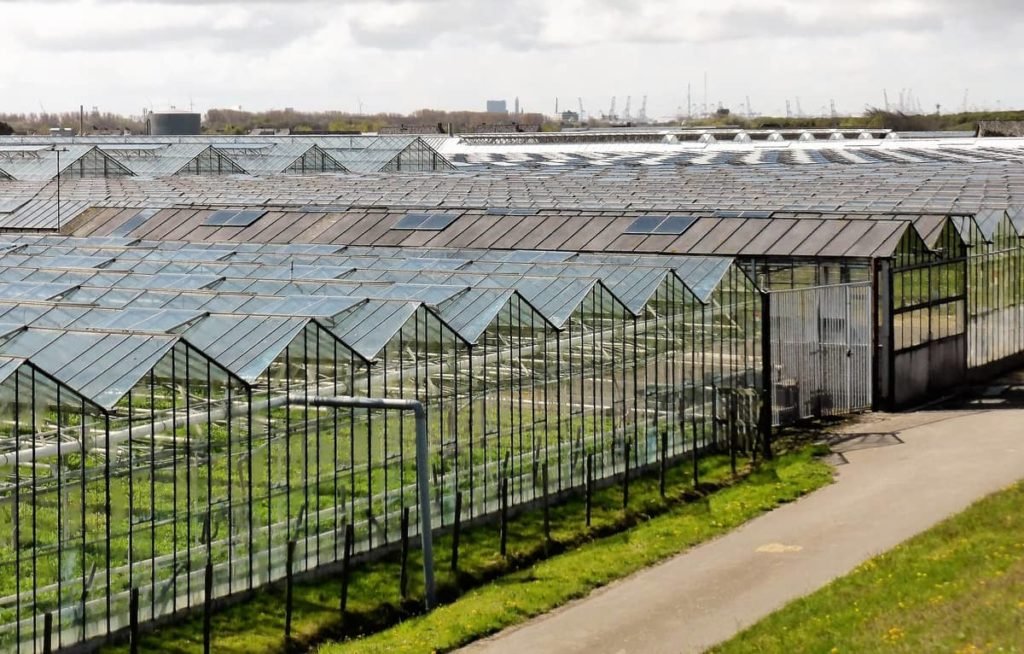
Concerns About Specific Plants
Of course, we can’t cover every individual plant that may be available to you, either. But once you have a grasp on the general knowledge above, you may want to get into more specific questions like these.
What types of plants thrive in local conditions?
Of course, just looking around the plant nursery will give you a good idea of what plants do well in your area. They’ll stock a supply suitable for their customers.
But you can get more specific about your yard and your interests to find out the best options!
How much space does this need?
One thing to take into account is how big a plant gets – both above and below ground. You don’t want to overcrowd your space. But you also want it to have a “complete” feeling with exaggerated spaces that look bare.
How much water does this need?
If you’re concerned about droughts and water conservation – or don’t want high-maintenance plants – you might want to know how often a plant will need to be watered!
Does this need to be staked?
Some plants need a bit of help to stand up straight. This isn’t dependent on your specific environment, but it’s good information to know before deciding on a purchase.
When does this bloom?
Do you have a favorite season when you would like to see your plants in full bloom? Or maybe you’re trying to create an environment where “something” is always in bloom and you have a colorful garden for an extended period.
Does it have an odor? Is it pleasant/unpleasant?
Yes, many plants smell – but not all smell good. If you’re sensitive to odors, you might want to ask what a flower or plant smells like when in bloom. This can help you keep your neighbors happy, too.
Does it attract any pests or helpful insects?
Some plants naturally repel pests; others can attract them. You can even choose ones that will attract helpful bugs that feast on their destructive cousins. Be sure to consider this so you can cut down on the amount of pest control you have to do.
Conclusion
The best knowledge for your lawn and garden will come from local sources. Get to know the people that work at your neighborhood greenhouse or plant nursery – they’re an incredible source of information! We’ll keep providing great guidance for you, but they’re the ones who can apply it to the specifics of your area.
